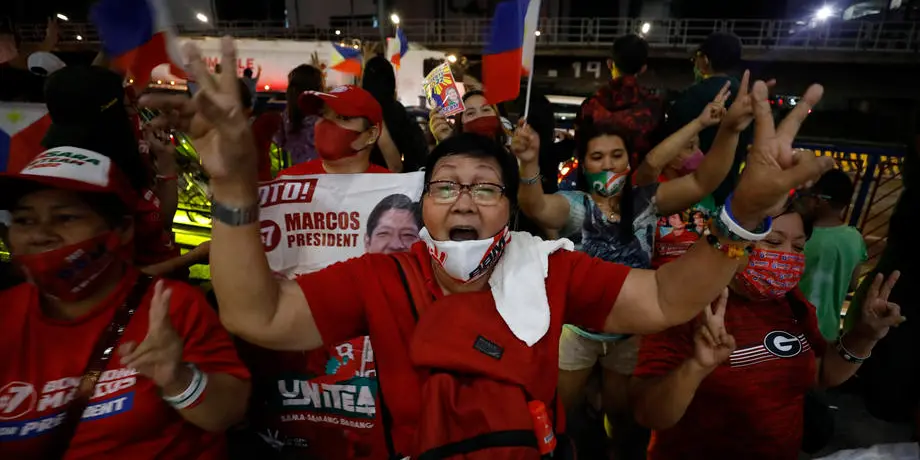
Southeast Asian MPs express concerns over the future of human rights in the Philippines after the elections
May 10, 2022

JAKARTA – Parliamentarians from Southeast Asia are concerned that the upcoming administration in the Philippines may not include human rights in its agenda, given that the prospective winner in the national and local elections held on 9 May, Ferdinand ‘Bongbong’ Marcos, Jr., has systematically whitewashed the appalling human rights record of his father, the late dictator Ferdinand Marcos.
This whitewashing has been part of massive disinformation campaigns, particularly online, that have enormously influenced the election results. Social media has become a powerful political tool in the Philippines with over 92 million recorded social media users, making the country a fertile ground for online campaigns of disinformation.
“The generalized spread of disinformation has created an environment which has made it difficult for many voters to make informed decisions at the polling station. Even though the electoral process has been conducted in a formally correct manner, we are concerned that voting choices based on lies and harmful narratives could have seriously undermined the integrity of the elections and democracy itself,” said Charles Santiago, Member of Parliament from Malaysia, and APHR Chairperson.
According to initial results, Marcos Jr. is set to win the presidency by a landslide, while his running mate, Sara Duterte, is leading in the run for the Vice-Presidency. Duterte is the daughter of current President Rodrigo Duterte, responsible for his infamous war on drugs, which has led to thousands of extrajudicial killings and is currently under investigation by the International Criminal Court for crimes against humanity.
“The victory of the son of a dictator and the daughter of a human rights abuser, both of whom have staunchly defended the legacy of their fathers, do not bode well for the restoration of rule of law and respect for human rights in the country,” said Santiago.
Marcos, Jr. has never acknowledged, let alone apologized, for the atrocities committed during the dictatorship of his father, who was ousted from power by a massive popular uprising in 1986. The apparent President-elect has also striven to protect the immense wealth that his family amassed during his father’s regime through all kinds of illegal means, as several court rulings both in the Philippines and abroad have proved.
In order to dispel those misgivings, ASEAN Parliamentarians for Human Rights (APHR) urges the new administration to protect the Philippine Constitution and ensure that the government abides to all its international human rights obligations. Marcos, Jr. should also return to the Philippine people the ill-gotten wealth in his family’s possession, as ruled by the Supreme Court, and ensure that all his tax obligations are fulfilled.
We call on Marcos, Jr. to honor and provide reparations to the victims of human rights abuses committed during his father’s regime, as prescribed by the Human Rights Victims Reparation and Recognition Act of 2013. He should also cooperate with the ICC and allow a full investigation into the alleged crimes against humanity committed during Rodrigo Duterte’s presidency.
The new government should also release Senator Leila de Lima immediately and unconditionally for the unjust detention she has suffered over the last five years, and drop all the trumped-up charges against her. De Lima was arrested on politically motivated charges in February 2017, shortly after she had launched a Senate investigation on the extrajudicial killings committed as part of President Duterte’s war on drugs.
We urge the incoming administration to also allow fundamental freedoms to thrive and put an end to the practice of baseless ‘red-tagging’ or ‘narco-tagging’ of critics and members of the political opposition.
With Ferdinand Marcos, Jr. due to be sworn in as President on 30 June 2022, APHR calls on Philippine civil society, human rights organizations, and the international community to remain vigilant and constantly monitor the actions of the Marcos, Jr. administration to prevent human rights abuses. APHR also invites all concerned stakeholders, including policymakers, in the Philippines and abroad, to work together in adopting policy measures to address disinformation at the institutional level and promote accountability. Together, all must continue to fight the scourge of disinformation.
ASEAN Parliamentarians for Human Rights (APHR) was founded in June 2013 with the objective of promoting democracy and human rights across Southeast Asia. Our founding members include many of the region's most progressive Members of Parliament (MPs), with a proven track record of human rights advocacy work.